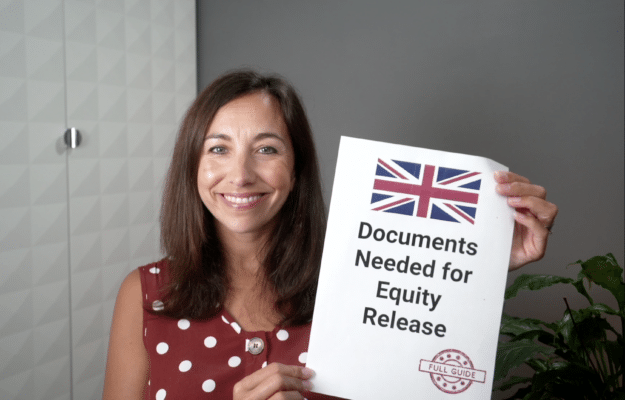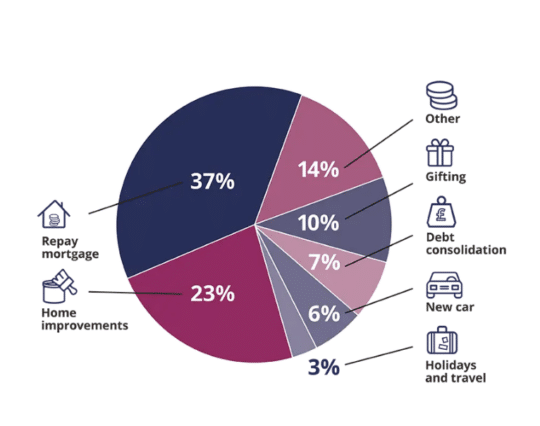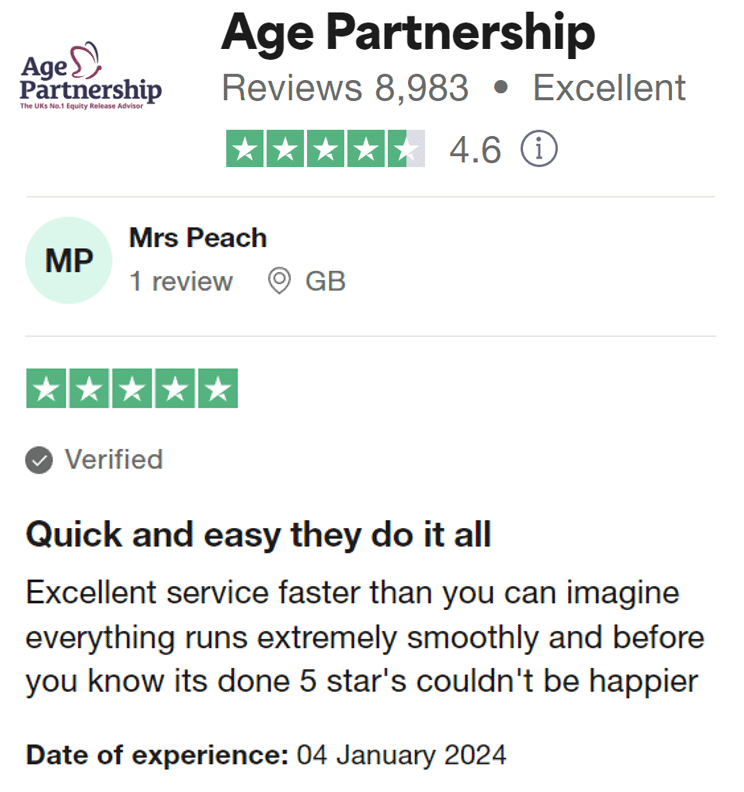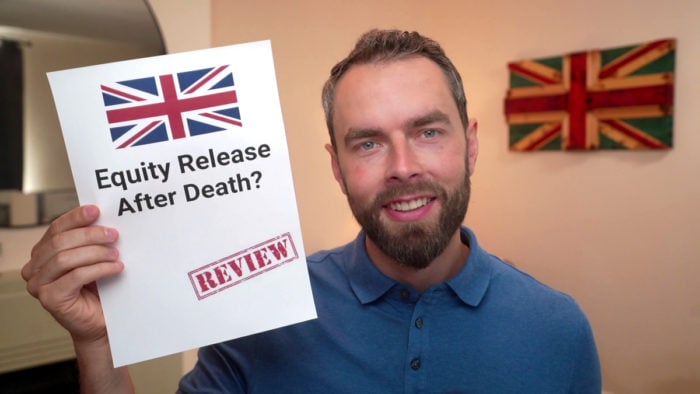Documents Needed for Equity Release? Your Checklist
Our preferred equity release adviser is Age Partnership. For free and impartial money advice you can visit MoneyHelper.

Our preferred equity release adviser is Age Partnership. For free and impartial money advice you can visit MoneyHelper.
It’s a daunting thought to apply for equity release, and if you don’t know where to begin, you might be feeling overwhelmed. If you’re applying for equity release, you might be wondering what documents you need to gather beforehand. I’ve done the research for you so that your initial equity release appointment goes as smoothly as possible.
So, what equity release documents do you need?
The first thing you need to know is that there are four main documents that you need to gather, and then an additional six which will help back you up.
What are the four main documents needed?
There are four essential documents that are needed for all equity release loans:
- Proof of identity
- Building insurance schedule
- Bank statements
- Proof of address
Proof of identity
Equity release lenders will need you to prove your identity, in the form of a passport or driving licence to verify you are who you say you are. They need this to confirm they’re lending to the correct applicant, and that there is no fraud or money laundering.
Building insurance schedule
Your equity release provider will need to confirm that your building insurance schedule is up to date and that the property you’d like to take out an equity release loan on is covered properly.
Building insurance confirms to your provider that your property is properly covered against major risks like flooding, fire damage, and even extreme weather. Lenders need to confirm this in case of any unforeseen events that could damage your property value.
How equity release could help
More than 2 million people have used Age Partnership to release equity since 2004.
How your money is up to you, but here’s what their customers do…
Find out how much equity you could release by clicking the button below.
In partnership with Age Partnership.
Bank statements
Equity release lenders will need to see how financially stable you are before making a decision on an equity release plan. Most lenders will want to see at least 3 months of your most recent bank statements, where your name, address and account number are clearly visible. It’s advisable to have these printed at your local branch rather than doing it yourself.
Note: some lenders may ask for 6 months of statements to ensure you’re financially stable. This is because bank statements clearly show your spending habits and therefore, your ability to manage money.
Proof of address
Proving where you live is another essential document that equity release lenders will want to see. They need to confirm that you’re living at the property you’re taking the loan out against, and also to comply with anti-money laundering regulations.
You can prove your address with utility bills or council tax statements. You can also do this with bank statements, but I’d recommend bringing the other two to back up your claim.
Now you’ve got the four essential documents sorted, let’s look into other documents you may need to enhance your chances of getting an equity release loan.
» TAKE ACTION NOW: Find out how much equity you could release
What are the other six documents needed?
Property title deeds
Having your property title deeds at hand will be useful because it confirms your ownership of your property and provides your lender with useful information such as its history, boundaries and any restrictions that are in place.
They need this information to assess your property and its suitability for an equity release plan. Your property title deeds are also used to verify whether there are any charges against your property such as a secured loan or a CCJ.
If there are any debts against your property, you may be asked to pay these off because equity release providers need to be the sole charge on your property and title deeds.
Mortgage information
If the mortgage on your property is still in progress, your equity release lender will need to see documentation related to these loans, which includes your mortgage policy and provider details.
They need these so that they can understand the terms of your mortgage, see how much is left to pay, and how this could affect any equity release plan they could offer you. Not only that, they will be able to see that you’ve got enough equity available to repay any existing loans against your property.
Note: your equity release provider will need the details of your current mortgage/loan provider to set up the repayment plan.
Solicitor and estate agent details
Providing your solicitor and estate agent details to your equity release provider will help with communication during the equity release process if you’re planning to use the loan to purchase a new property.
Not only that, your solicitor and estate agent may be used during legal processes, and your equity release provider may need to communicate with them at times.
Occupier documentation
If you have tenants living in your property with you, your equity release provider will need information on this in the form of tenancy agreements or any other documents you have. This helps the lender assess any risks that could affect your equity release plan.
Leasehold information
If your property is in a leasehold, your equity release provider will need to see your lease to understand the terms and how long is left on your lease. This documentation will also show them any other restrictions that could affect the property value or even the equity release plan.
Join thousands of others who release equity
Age Partnership have helped over 2 million people release equity from their home.

Mrs Wareham
“I am more than pleased to have taken out Equity Release with Age Partnership.”
Reviews shown are for Age Partnership. Search powered by Age Partnership.
Solar panel documentation
Solar panels famously impact the value of a property, so your equity release provider will need to see any documentation you have for solar panels installed on your property. Not only that, they will also need to review the documentation for things such as:
- Property value – as mentioned above, solar panels can increase the value of a property through energy savings and also income from energy sold back to energy companies. Lenders need this information to assess the impact of solar panels on the property value, therefore determining how much the owner can lend.
- Ownership and maintenance – your equity release provider will need this information to confirm you own the solar panels installed on your property. Some properties use third-party providers. If your solar panels are leased, it may affect the property value.
- If you’re on a Feed-in Tariff (FiT) or a Smart Export Guarantee (SEG) – your equity release lender will need to see this information as it may also affect your property value and financial situation.
- Safety – lenders will need to know that your solar panels are safe, properly installed and correctly maintained. Your documentation will need to outline who installed them and all of the maintenance history, including any warranties you have.
- Planning permissions – lenders will also need to see that your solar panels comply with planning permission requirements and building regulations. If they are not, this could lead to legal action and impact your property value.
Failure to provide this documentation could impact your ability to take out an equity release loan against your property. Lenders use this information to determine the value it adds to your home and also whether their investment is worth it.
Going into an equity release application unprepared only spells out bad news. Now you’ve got the knowledge on which documents you’ll need to help your application process go as smoothly as possible.
Remember that choosing equity release is a big decision and shouldn’t be taken lightly. That’s why I’d recommend speaking to a qualified equity release advisor before making your final decision.
The above 10 documents help the equity release lender assess your affordability, how suitable your property is, and any risks that could crop up along the way.


